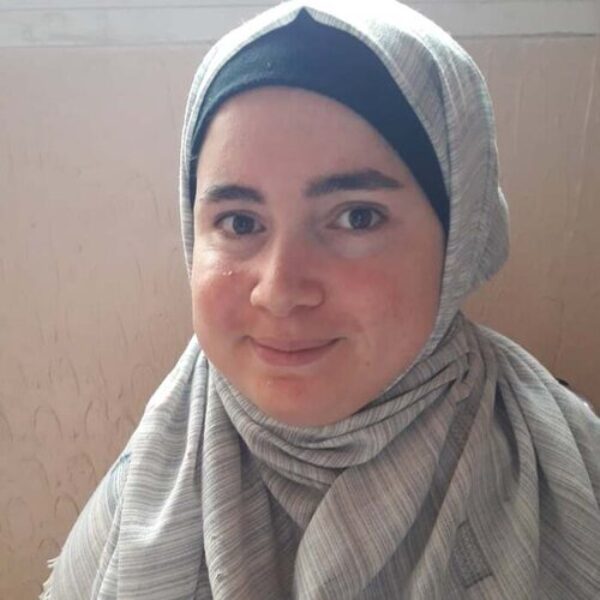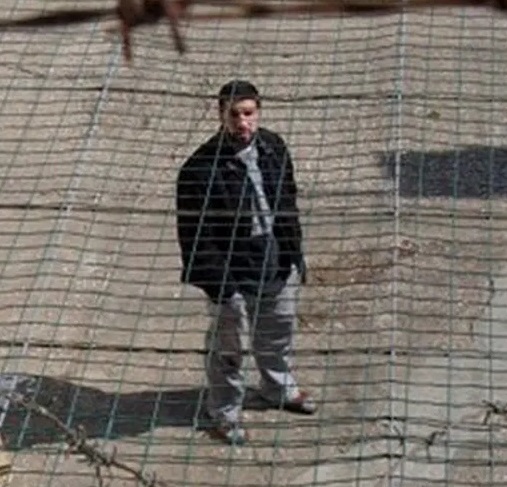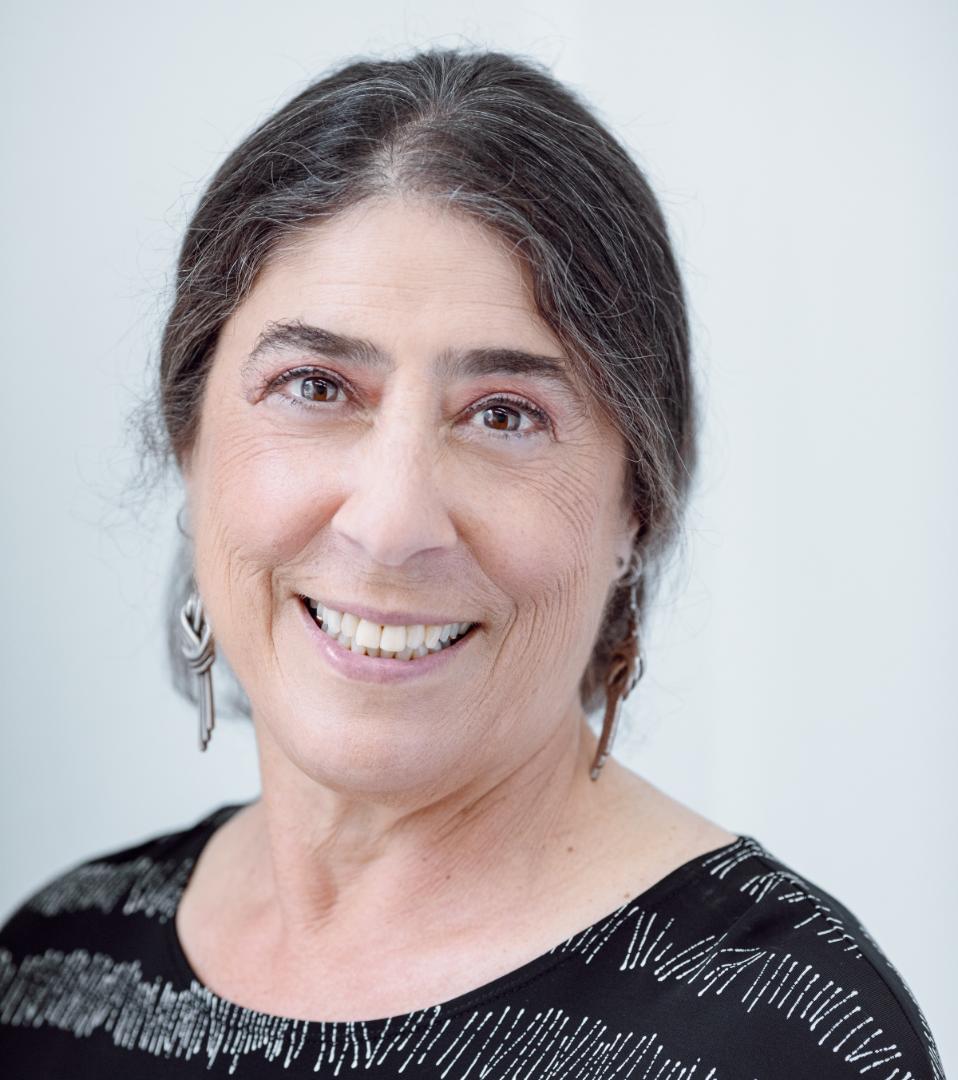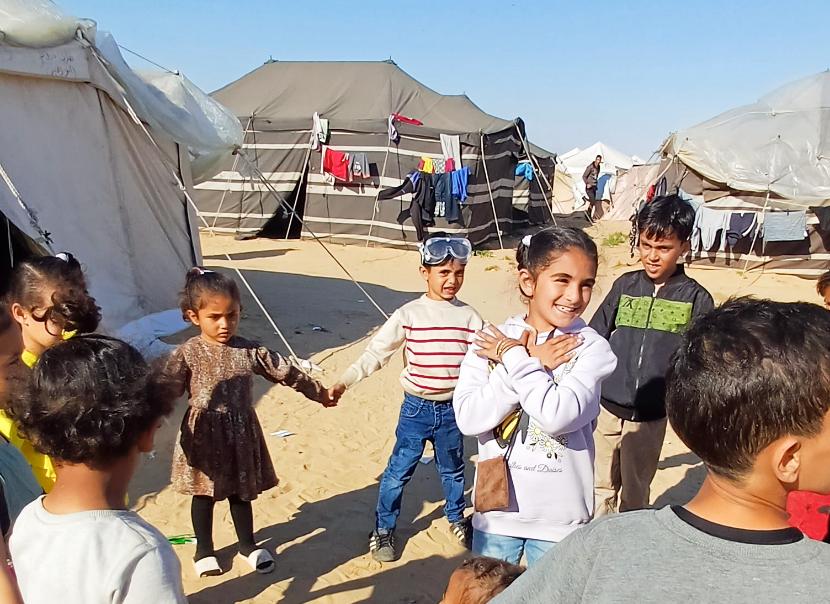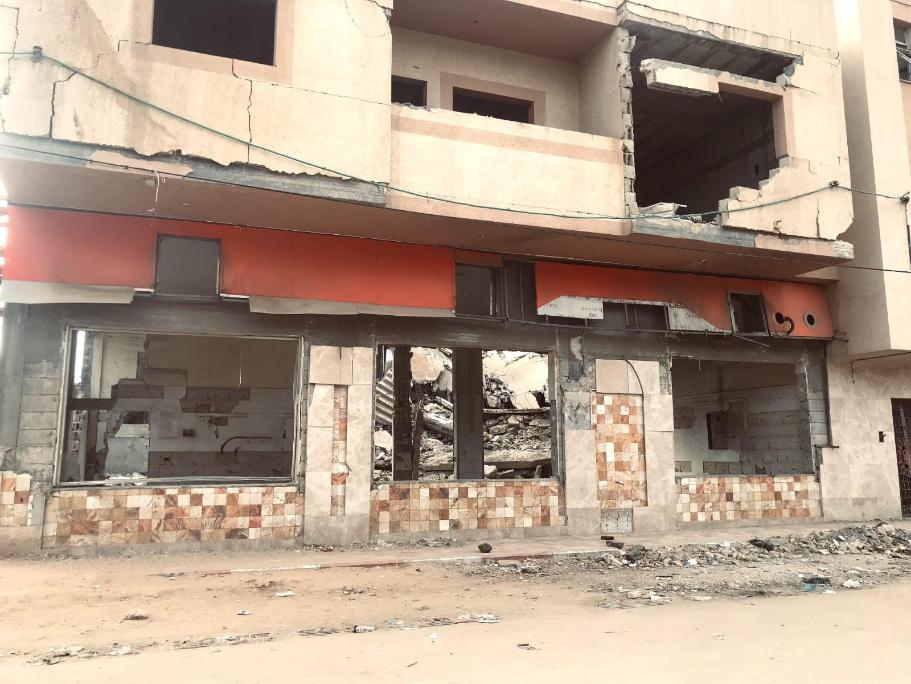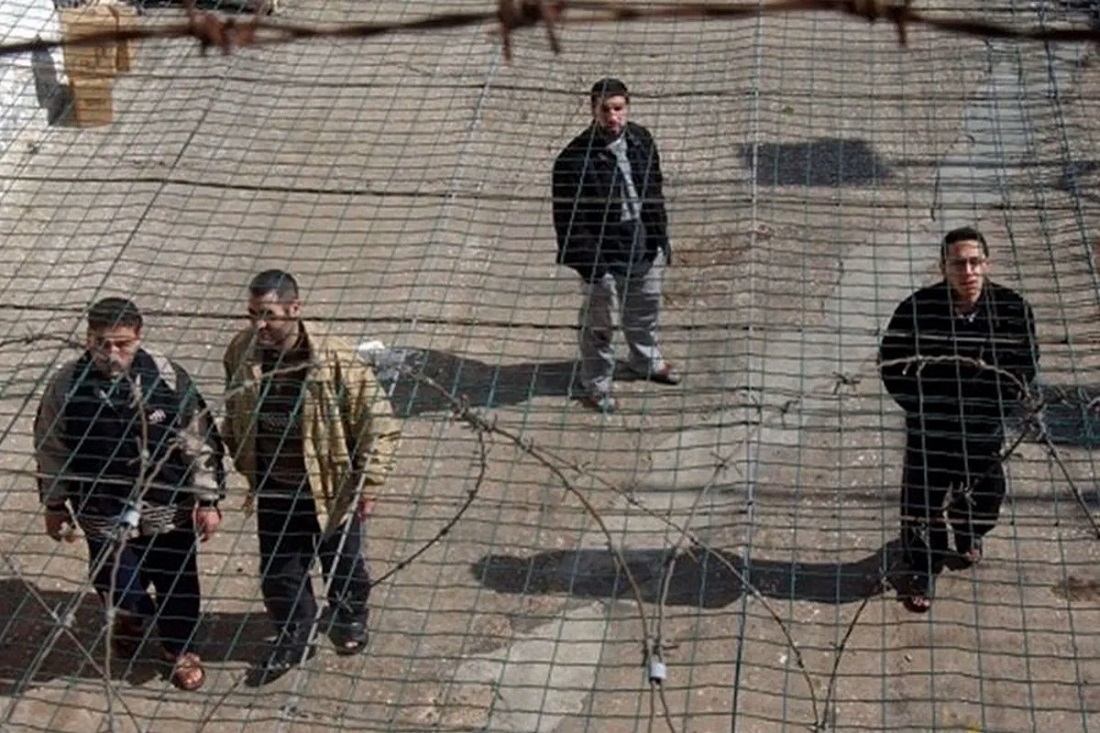
It is 11 a.m. He is not waiting alone; many are around him and each is lost in his or her own thoughts. His head is almost exploding as if his own thoughts are a sword stabbing mercilessly into his brain. What will he say when he sees her? What will he ask when she comes? He cannot imagine where to begin or where to end. They will get only 45 minutes. Memories scroll through his brain. He recollects his last day of freedom as if it were yesterday.
~
He was 24 years old. He held his 4-month-old daughter while his wife prepared milk to feed her. The baby was as innocent as an angel. She did not know the meaning of pain or of living in Gaza, a walled-in prison without an escape door.
It was during the days of war. There was nothing to hear on the radio but “wounded,” “martyr,” “wounded,” “martyr.” The same news repeated every day. “Urgent. Two children were just martyred when Israeli planes targeted the garden in front of their house where they were playing."
“What did the two children do to Israel to be killed? Nothing. Israel murders everything before it is even born,” he said silently to himself.
He looked into his daughter’s eyes and saw a story that had just begun, of a homeland in which he wished to live. He imagined for a moment that his infant had been one of the two murdered children, the occupation snuffing out her laughter. His body trembled. “Let me take her,” his wife said kindly, removing the baby from his arms to feed her.
As he handed her over, the sound of nearby explosions was so strong it hurt his ears. Seconds later, there was a hard knock on the door.
“We are in a war,” he said to his wife, frowning. “Who would be knocking?”
~
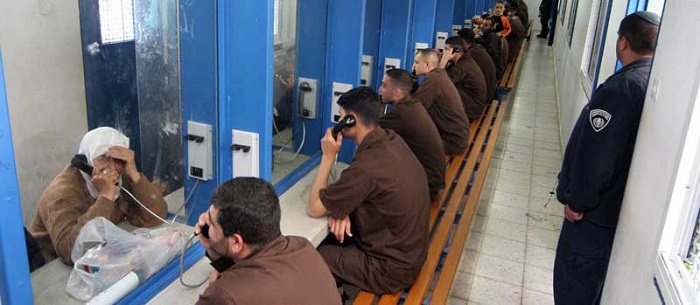
A rectangular room. Fifteen detainees. Each sitting on a chair looking eagerly for his family, whom he is allowed to see once a month for 45 minutes. The detainee is on one side of a glass window, and the visitor on the opposite side. They talk via a telephone. No hugs. No kisses. No touching. No wiping away tears when they fall.
~
Three Israeli soldiers entered his home without permission, without caring if there were children or women at home. They searched the house and left nothing in its place, turned everything upside down.
“We were told there are weapons of resistance in your house,” one of them said coldly.
“No,” the 24-year-old answered, struggling to show no fear. “I do not have what you claim.”
As usual, he soldiers repeated their accusation They raid houses and destroy everything on the pretense that there are hidden weapons. If you are a Palestinian, you're always suspect.
He looked at his wife, seeing the tears in her eyes that she tried to wipe away. His child began to cry and one of the soldiers looked at her angrily. He was afraid that his worst horror might come true—that his daughter’s life might be snatched away like the two children on the radio.
With an unsteady voice he asked, “What do you want?”
One of the soldiers scowled and pointed a gun at his head and grabbed his arm. “To prison. Walk!"
He never thought of fighting them. He knew his attempt would fail, ending with a bullet.
~
He has a sharp headache. A half an hour has passed while he waits for his wife. He has been in prison for many years and the allowed timeto visit is just 45 minutes. Not an hour. Not 46 minutes. Exactly 45 minutes. He struggles hard not to remember the last words he heard his wife said before he was taken away.
“Leave him alone! Leave him alone!” she screamed bitterly. Her cries and those of his daughter echoed in his ears. He remembers being marched to the jeep, the pressure of the blindfold over his eyes. He remembers the cell door slamming and his handcuffs clanking against the metal walls.
~
Every time his wife comes, their daughter, now 8 years old, dominates their conversation. Her first try to say Mama and Papa, her first steps, her first day in school, her first drawing, her first perfect score at school and her first tears when she sees other children with their dads. “Her eyes reflect Palestine,” his wife once said.
Forty minutes have passed without a sign of his wife. He realizes the Israeli soldiers must haave prevented her from crossing the Gaza border to the prison. This is not the first time they have done that, yet he had been clinging to the hope he would see her today.
“Wala, fesh zeyara elak elyoum—No visit for you today,” says the soldier coldly, killing all hope that his wife will still come.
With a heavy heart and a face soaked in tears, the detainee stands. Back to the prison cell, back to suffering, back to humiliation, back without seeing his wife, back without hearing about his little daughter and back to being a nobody. Just a number.

